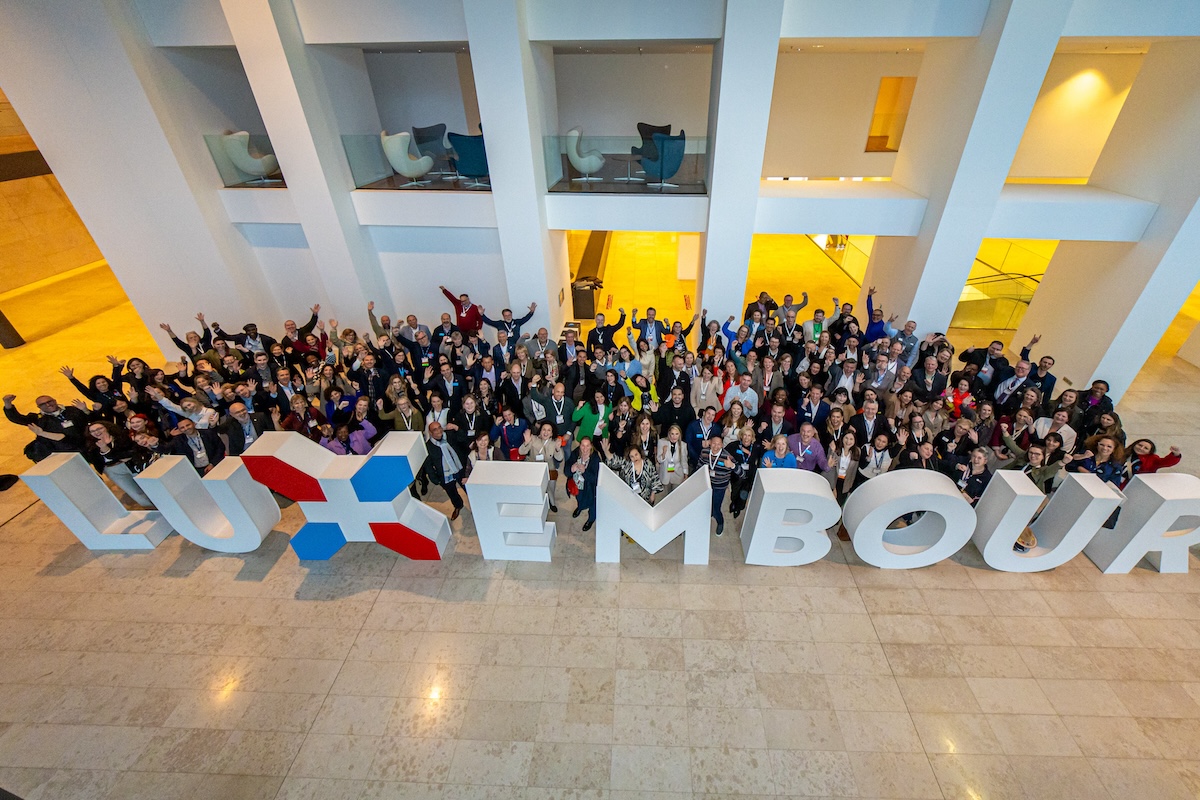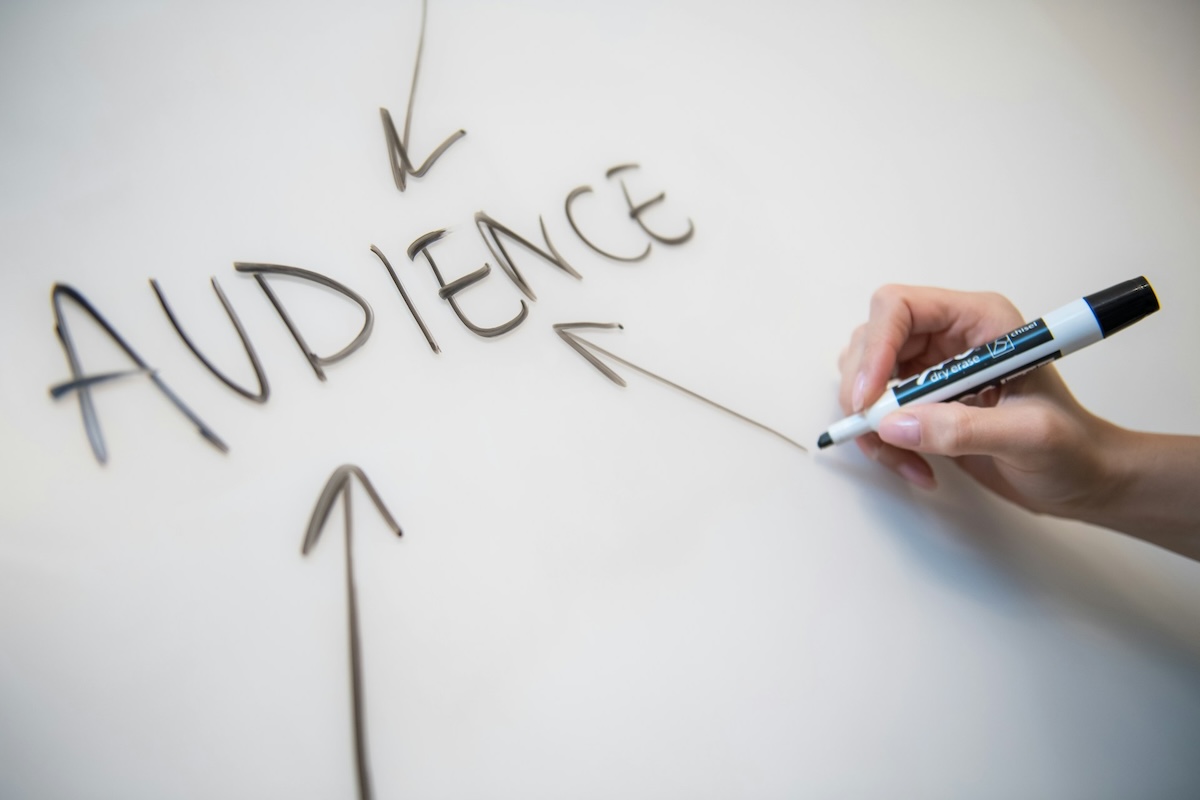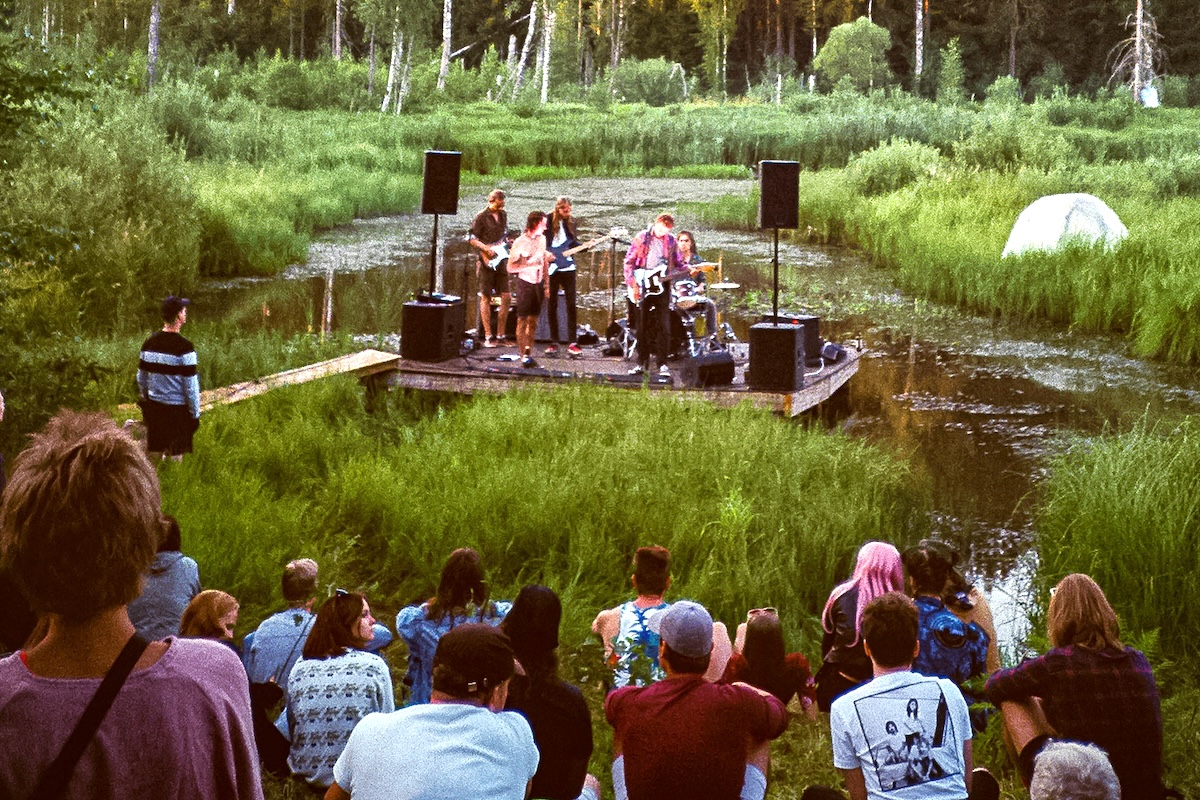Skift Take
Corporate planners are building new centers of event excellence in new and collaborative ways. Some aim to inspire the entire meetings industry, while others focus on standardizing their event design and procurement processes.
Corporate planners from Google, SAP, and Bayer are among those creating centers of event excellence. This week, Google’s efforts hit a milestone, holding the first Google Xi Days event in New York.
For different reasons, they are looking beyond the body of knowledge the meetings industry offers and creating custom resources to match their needs. They don’t see this as recreating the wheel but as a necessary evolution, a bespoke blend of documenting event design processes and strategic meetings management (SMM).
They have also uncovered fascinating insights about gathering humans and created new partnerships along the way.
Google Reimagines What Events Should Be
The Google Experience Institute (Xi) started as a personal quest of Megan Henshall, global events strategic solutions lead at Google. “2021 was the year of, okay, now what, let’s figure this thing out. I was very overwhelmed and befuddled on how to reimagine our strategy in 2021,” she said, speaking at the Skift Meetings Event Design Summit.
In searching for ways to overcome the challenges brought on by the Covid pandemic, she called on people within Google and external experts to help. “If we’re gonna answer this really big question of what could the future of events and experience design look like, we probably shouldn’t do it alone or in a silo,” said Henshall.
The collaborative approach led Henshall to partner with a wide selection of meeting designers, experts, and people far removed from the industry. This also led to far greater ambitions for the project. “Because of the connections and relationships we’ve built, we’re no longer trying to answer the question of what could be the future of events. We’re answering the question, what should they be?” said Henshall. “And how can we use our discipline for good and make the right choices on behalf of our audiences, designing for other people rather than against our own objectives”.
Henshall predicted her quest would lead her to technology solutions, proving return on investment and a search for hard data. She was wrong, and happily so. “It’s no longer about hard dollar revenue generation or cost avoidance. It’s about community and connection and helping people belong and wanna stay in a place with people,” said Henshall.
The project moved quickly, instinctually, and evolved organically, and Xi officially launched in August 2021. Its manifesto talks about serving as explorers, excavators, and bridge builders; and expresses a desire to move from return on investment to time well invested. Ultimately the project is designs to benefit Google, but as one of the world’s largest and most powerful companies, it could surely also positively impact meetings in general.
One noteworthy project born in the Xi community is The Neu Project. It aims to help event and experience designers create more inclusive environments.
Key partners in the Xi community include event engagement and human experience experts Storycraft Lab who contributed with their trademarked Experience Profiles and the Wheel of Belonging.
Belonging is a key theme across much of Xi’s work. Others include measuring success at scale, audience agency and advocacy, and in-the-moment feedback and sentiment capture. The latter has led to testing concepts and technologies that can give planners a better understanding of audience reactions and behaviors during events. Partners include Debut Group, Immersion, Zenus and Meeting Pulse.
Evolving Into an In-Person Event
There are high expectations around bringing a community of experts together for a live event. Xi Days has been put forward as an inaugural event, the first of many.
The Xi Days agenda mixes speaker-led talks with experiential exhibits and galleries and lots of opportunities for group discussion and one-on-one networking. Google describes it as a multi-sensory experience that allows each participant to engage differently. It features non-traditional experiential content with a particular emphasis on joy, play and wellbeing.
Bringing everything are essential principles that underpin the community and the experimental processes. Among them are keeping spaces and discussions welcoming and open, embracing undefined outcomes, being comfortable to fail together as a community, and the pursuit of ‘better-ness’.
In addition to internal speakers, Google is working with various people to inspire the Xi Days audience. These include creative agency Haute, textile and product designer Lori Weitzner, the perfume manufacturer Mane, sensory play experts Sloomoo Institute, engagement experts Storycraft Lab, experience design and live-action roleplay (LARP) experts College of Extraordinary Experiences, wellness technology company TUNE and architecture and design studio Reddymade.
SAP Develops Proprietary Event Excellence Resources
The German Convention Bureau is bringing several corporate planners together to exchange knowledge. Mathias Sondermann has been with the software giant SAP for over 15 years and has been the head of SAP’s Global Events Center of Excellence since February 2021.
Over the last two years, he has focused on establishing a consistent approach to events across the organization. “The goal ultimately is that whatever organization within SAP that plans and produces an event creates a consistent customer experience along a defined customer journey,” he said.
He has taken a collaborative approach to build the center, including multiple stakeholders in the guideline design process. The initial round of needs assessment led to the first service, a company-wide event calendar that provides much-needed visibility about event types and target audiences across the organization.
Streamlining SAP’s complex event supply chain is challenging, with 12 different types of events of varying sizes and scopes.
Sondermeann’s ultimate goal is for the center to be the first go-to place and resource for anyone involved in managing SAP’s events. It should help them understand if creating an event is the right tactic for their goal. If this is the case, it offers guidance through the event management process in a way that uses the least resources. “That allows you to create the biggest impact possible according to the goals,” said Sondermann.
A tool for making internal business cases for events is in the works. It encourages SAP staff to align event goals with desired actions. It also ensures sales teams are included in the process to ensure events have the desired impact in the field. Additionally, there are plans in place for a measurement framework that will allow SAP to track event performance.
Sondermann encourages meeting professionals to look beyond their comfort zone and refrain from reinventing the wheel for every event. Having a center of excellence means they can focus on the most relevant pieces rather than spend precious time managing standardized elements.
Bayer Focuses on Virtual Event Excellence
The initial shock of making events virtual at the start of the Covid pandemic presented a brand-new world for Frank Dräger, head of event management business partnering & innovation at Bayer. He is the driving force behind Virtual LetsMeet, a virtual toolkit designed to help Bayer staff better manage virtual events.
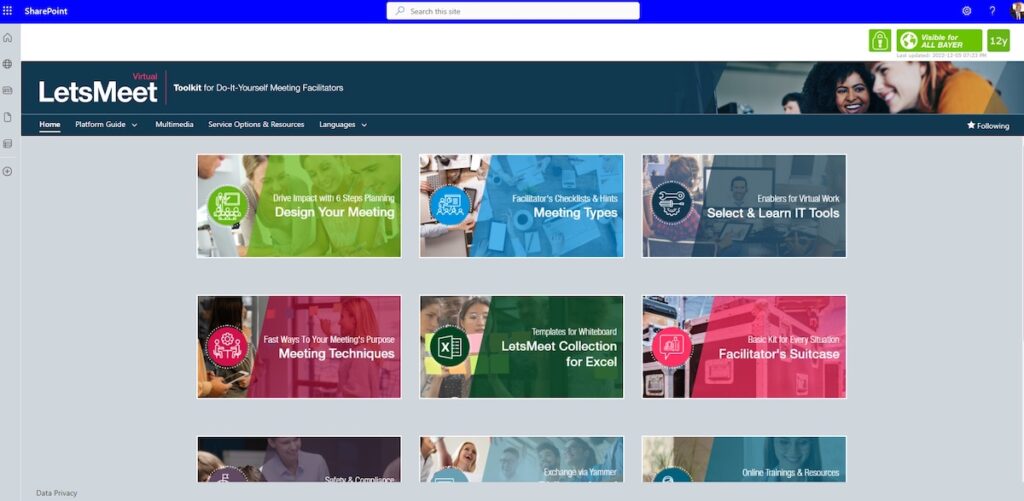
Among its more than 100,000 global employees globally, many managed virtual events in an informal capacity. While those with formalized event roles received formal training, it became clear that Bayer could not train everyone.
This led Dräger to create the company’s virtual toolkit, using many of the resources gathered through training and research. “We want them to do efficient and good meetings, so we share what we know with all those ones who are supposed to organize their meetings on their own,” said Dräger.
Virtual LetsMeet is a Microsoft SharePoint team site for anyone at Bayer hosting virtual meetings. The site includes an overview of different event types and which events should be used for which purpose. It also features various tips, tricks, and hints that Dräger and his team have collected and curated. “We have several meeting techniques. As professionals organize meetings, we put it in a sort of digestible content for our people,” he said.
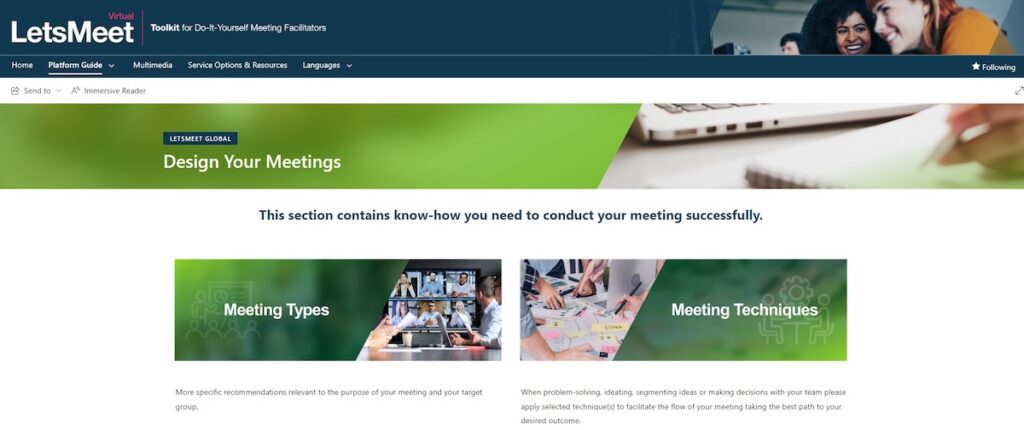
Creating these resources was also important from a job security perspective. “If we want to remain as an event management team within our company, we need to find out how we can add more value,” said Dräger. “Just being the logistic guys or the infrastructure guys who purchase hotel rooms and organize transfers and meeting rooms, etc., would not be sufficient,” he added.
More than 1,500 Bayer team members worldwide use the site now, and the community can also join monthly expert talks. In addition, Dräger building an on-demand training course with short video clips featuring external experts.
While the site is focused on virtual meetings, Dräger is already planning ahead to build resources around in-person events. He is open to collaborating with other event management teams, but his vision is for the project to be recognized internally. ‘Event management at Bayer’ has a good ring to it.
Benefiting the Entire Meetings Industry
Creating internal processes that define and standardize event excellence is not new. Strategic Meetings Management has been discussed widely for over a decade. However, new approaches are more collaborative, both across internal and external teams. The impact of the Covid pandemic and the acceleration in event technology has also changed the landscape.
Meetings industry standards such as Events Industry Council Manual, now in its 9th edition, still have their place. After all, this is a key publication for anyone looking to become a certified meeting professional. However, as with any single manual or guide, it can only offer an overview of topics to cover in such a wide-ranging industry. There is also a focus on the U.S. meetings industry, particularly regarding regulations and standards.
Finding ways to collaborate with other teams of corporate planners could benefit the entire industry and would be a welcome evolution of the individual event centers of excellence. While the German Convention Bureau is working toward this type of collaboration, much work must be done to make wider collaboration possible. The larger meetings industry associations such as MPI and PCMA could have an active role to play.
Photo credit: Sigmund / Unsplash


